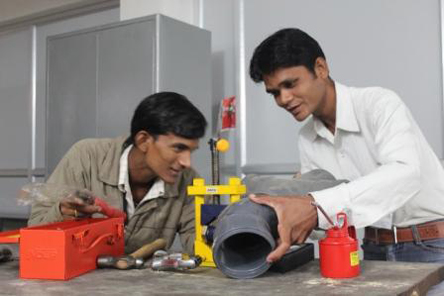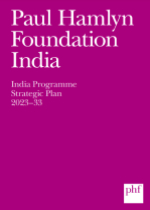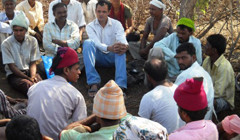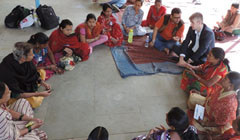Aajeevika Bureau
Rs. 3,139,500 awarded over one year to Aajeevika Bureau
More than 100 million people, almost a tenth of India’s population, make their living out of seasonal migration. Their entry into urban labour markets is marked by endemic disadvantages. Devoid of critical skills, information and bargaining power, they get caught in exploitative labour arrangements that force them to work in low-end, low-value, hazardous work environments in the informal sector. Lack of identity and any form of social protection accentuates this problem.
In the last two decades, south Rajasthan has emerged as a large labour exporting region of India, supplying cheap labour to states including Gujarat, Maharashtra, Madhya Pradesh and Karnataka. Around 800,000 workers move from southern Rajasthan to work in the unorganised sector comprising construction, textiles, domestic work, agriculture, hospitality, mines and quarries, hotels and restaurants. Most start work at 13-14 years of age, lacking education and skills, and are forced to undertake manual labour for meagre wages.
Aajeevika Bureau (AB) is a non-governmental, non-profit initiative providing services, support and security to rural, seasonal migrant workers. AB is premised on the notion that rural to urban migration is an inevitable socioeconomic reality in transition economies such as India, where vast populations are no longer able to secure meaningful livelihoods from limited rural resources. The organisation was formed with the idea of transforming migration into a more positive opportunity for vulnerable segments of the migrant workforce, by improving their incomes, security and stability, both in labour markets and their rural homes.
Headquartered in Udaipur, Rajasthan, AB works in the south Rajasthan-Gujarat migration corridor. Through a network of walk-in resource centres, it offers a range of services to migrant workers such as registration, photo ID, skills training, placement, legal aid, financial services and opportunities for collectivisation. Our grant is to support work at migrant centres and for a study on migrant workers’ access to financial services.
When AB began its work, there were few examples of services for migrant workers in India. In a relatively short period, AB’s work has come to enjoy widespread recognition for its innovation and impact. Its service model has been adopted by a large number of organisations across Uttar Pradesh, Bihar, Odisha, Rajasthan, Maharashtra, Karnataka, Madhya Pradesh and Andhra Pradesh. This network has also now come together as a National Coalition working for security of migrant workers.



